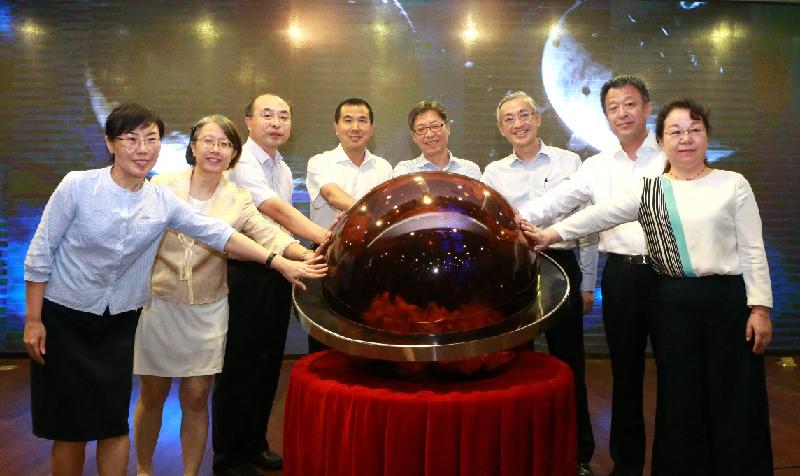Asian Aviation Meteorological Centre commences operation (with photo)
The Asian Aviation Meteorological Centre (AAMC), jointly established by the Hong Kong Observatory (HKO), the Civil Aviation Administration of China (CAAC) and the China Meteorological Administration (CMA), commenced operation today (July 11). The AAMC aims at providing meteorological organisations in the region and the aviation sector with quality en-route weather information, so as to meet industry needs and improve aviation safety and efficiency.
The Director of the HKO, Mr Shun Chi-ming, the Deputy Administrator of the CAAC, Mr Wang Zhiqing, and the Deputy Administrator of the CMA, Mr Yu Rucong, officiated at the launch ceremony of the AAMC in Beijing this morning.
Mr Shun said the HKO is pleased to join the CAAC and the CMA in establishing and operating the AAMC, which will provide a co-ordination platform as well as information on hazardous weather and other relevant areas. The AAMC will support meteorological organisations in the region in better serving the aviation sector and coping with increasing flight traffic. In 2004, the three agencies established the Asian Aviation Meteorological Service Website, which is the predecessor of the AAMC. Since then, the website has been fully upgraded. The three agencies have also been working closely with meteorological organisations in the region to co-ordinate Significant Weather Information (SIGMET) with a view to improving the level of aviation meteorological services in the region.
At the launch ceremony, Mr Wang Zhiqing said the AAMC would provide international and Chinese meteorological organisations with fine resolution alerts for significant convection, turbulence, icing etc. It would also improve the service level of aviation meteorological forecast. Moreover, he thanked the CMA and the HKO for their support.
The AAMC seeks to provide a weather monitoring platform for issuing forecasts and alerts on hazardous weather affecting aviation operation such as thunderstorms, turbulence, icing and more for reference by meteorological organisations of neighbouring countries and regions and the aviation sector. The AAMC also provides a platform for forecasters from different areas to coordinate SIGMET contents, with a view to improving the overall forecast quality.
The AAMC comprises a main centre operated by the CAAC, a technical support centre operated by CMA, both in Beijing, and a backup centre operated by the HKO in Hong Kong. The HKO’s backup centre will specialise in nowcasts and high-resolution numerical weather forecasts, and related verification, as well as objective assessment and verification of forecasts by the main and technical support centres. The backup centre will also support the daily operation of the main centre.


